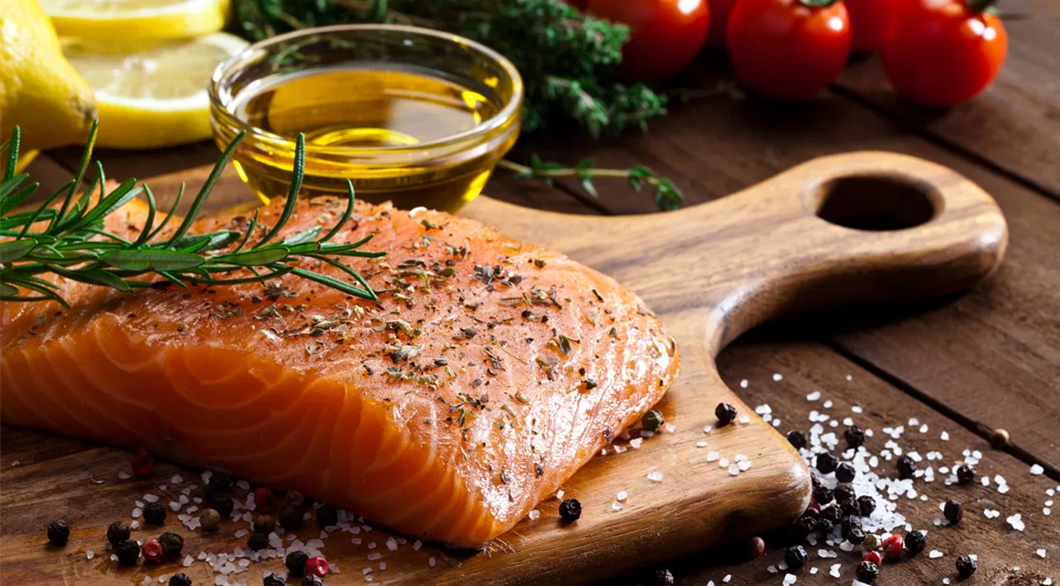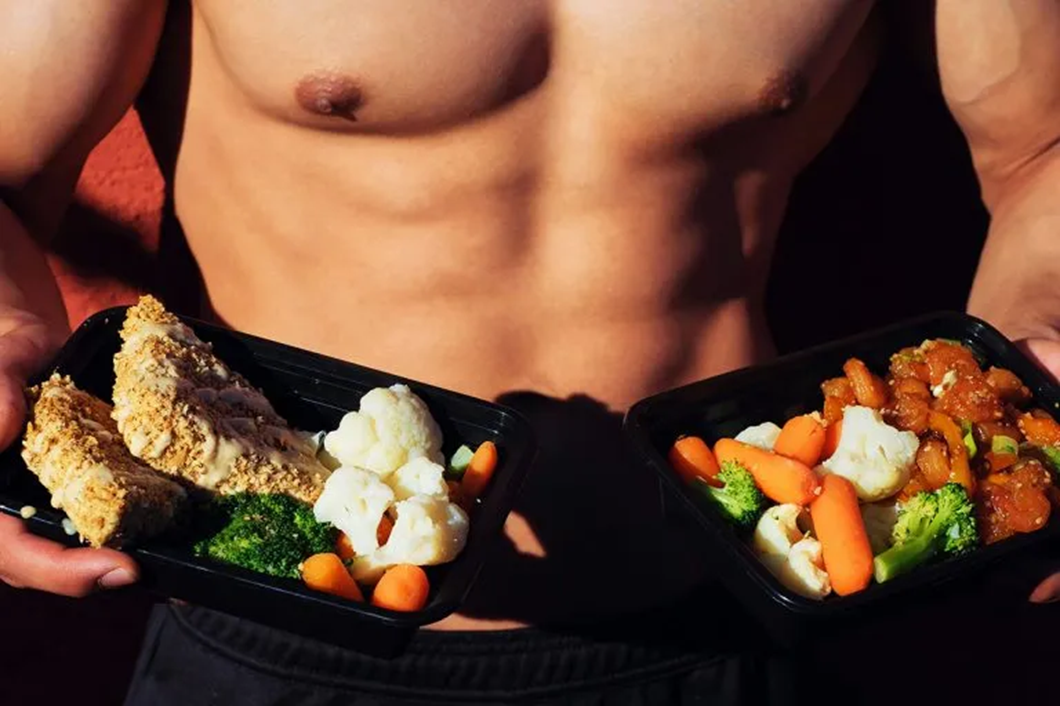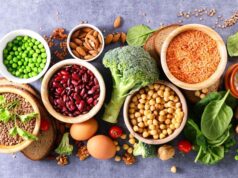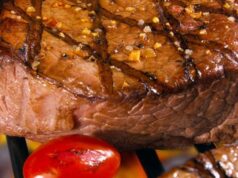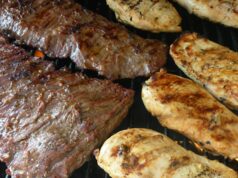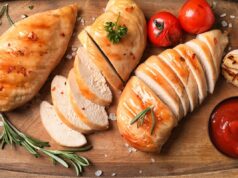Nutrition for Muscle Growth
Building muscle isn’t just about lifting heavy weights—it’s also about fueling your body with the right nutrients. Nutrition plays a critical role in muscle recovery, strength gains, and overall performance. Without a well-structured diet, even the best training program won’t deliver optimal results.
This guide will break down the essentials of nutrition for muscle growth, including macronutrients, meal timing, and the best foods to support your goals. Whether you’re a beginner or an experienced muscle builder, understanding how to eat for muscle growth will help you maximize your efforts in the gym.
Understanding Macronutrients for Muscle Growth
Macronutrients—protein, carbohydrates, and fats—are the building blocks of any muscle-building diet. Each macronutrient plays a distinct role in muscle growth, recovery, and overall health.
Protein: The Foundation of Muscle Growth
Protein is essential for muscle repair and hypertrophy (growth). When you train, your muscles experience small tears that need to be rebuilt, and protein provides the necessary amino acids to support this process. Without enough protein, muscle recovery slows down, and gains become limited.
- How much protein do you need?
- A general recommendation for muscle growth is 1.6–2.2 grams of protein per kilogram of body weight (or 0.7–1 gram per pound).
- Advanced lifters or those in a caloric deficit may benefit from slightly higher protein intake.
- Best Sources of Protein:
- Lean meats (chicken, turkey, lean beef)
- Fish (salmon, tuna, cod)
- Eggs and egg whites
- Dairy (Greek yogurt, cottage cheese, milk)
- Plant-based sources (tofu, tempeh, lentils, quinoa, chickpeas)
- Protein supplements (whey, casein, plant-based protein powders)
Carbohydrates: The Fuel for Performance
Carbs are your body’s primary energy source, providing fuel for workouts and aiding in muscle recovery. While some diets demonize carbohydrates, they are essential for those looking to gain muscle effectively.
- How many carbs should you eat?
- Aim for 3-6 grams of carbohydrates per kilogram of body weight (or 1.4–2.7 grams per pound) depending on activity level.
- If you train intensely, you’ll need more carbohydrates to replenish glycogen stores and sustain energy.
- Best Sources of Carbohydrates:
- Whole grains (brown rice, quinoa, oats, whole wheat bread)
- Starchy vegetables (sweet potatoes, regular potatoes, squash)
- Fruits (bananas, berries, apples, oranges)
- Legumes (lentils, beans, chickpeas)
Fats: Essential for Hormonal Balance and Recovery
Fats play a crucial role in hormone production, including testosterone, which is vital for muscle growth. They also support joint health and overall recovery.
- How much fat should you consume?
- Roughly 20-35% of your total daily calories should come from healthy fats.
- Avoid extremely low-fat diets, as they can negatively affect hormone levels and performance.
- Best Sources of Healthy Fats:
- Nuts and seeds (almonds, walnuts, chia seeds, flaxseeds)
- Avocados
- Fatty fish (salmon, mackerel, sardines)
- Olive oil and coconut oil
- Full-fat dairy (Greek yogurt, cheese)
Meal Timing and Frequency: Does It Matter?
The timing of your meals can influence energy levels, performance, and muscle recovery. While total daily caloric intake is the most important factor, meal timing can still provide benefits.
Pre-Workout Nutrition
Eating a well-balanced meal before training ensures you have enough energy to perform optimally. The ideal pre-workout meal includes carbohydrates for energy and protein for muscle support.
- Example Pre-Workout Meal (1-2 hours before training):
- Chicken with brown rice and vegetables
- Oatmeal with protein powder and a banana
- Greek yogurt with granola and berries
Post-Workout Nutrition
After training, your body needs nutrients to repair muscles and replenish glycogen. The post-workout window (30-60 minutes after training) is the best time to consume a meal rich in protein and fast-digesting carbs.
- Example Post-Workout Meal:
- Grilled salmon with sweet potatoes and steamed vegetables
- Protein shake with a banana and almond butter
- Egg whites with whole wheat toast and avocado
How Often Should You Eat?
There is no strict rule on meal frequency, but 4-6 meals per day is ideal for most individuals looking to build muscle. Spreading protein intake evenly throughout the day (every 3-4 hours) helps with muscle protein synthesis and recovery.
Hydration: The Overlooked Key to Muscle Growth
Water is crucial for muscle function, recovery, and overall health. Dehydration can lead to reduced strength, endurance, and slower recovery.
- Aim for at least 3-4 liters of water per day, adjusting based on activity level and sweat loss.
- Electrolytes (sodium, potassium, magnesium) help maintain fluid balance and prevent muscle cramps.
- Coconut water, sports drinks, and electrolyte tablets can help replenish lost minerals after intense workouts.
Supplements: Are They Necessary for Muscle Growth?
While whole foods should be your primary source of nutrients, supplements can fill nutritional gaps and enhance recovery. Some of the most effective supplements include:
- Whey Protein: A fast-digesting protein source ideal for post-workout recovery.
- Creatine Monohydrate: Improves strength, endurance, and muscle growth.
- BCAAs (Branched-Chain Amino Acids): May aid recovery but are unnecessary if protein intake is sufficient.
- Omega-3s: Help reduce inflammation and support joint health.
- Multivitamins: Ensure you’re getting all essential vitamins and minerals.
Common Nutrition Mistakes to Avoid
Not Eating Enough Calories: If you’re not consuming more calories than you burn, you won’t gain muscle.
Skipping Protein: Protein is essential for recovery and muscle growth—ensure you’re getting enough daily.
Neglecting Carbs: Low-carb diets can negatively impact performance and recovery.
Not Drinking Enough Water: Dehydration hinders performance and slows muscle recovery.
Relying Too Much on Supplements: Whole foods should always come first—supplements should only be used to complement a balanced diet.
Sample Nutrition for Muscle Growth Meal Plan (One Day)
Breakfast: Scrambled eggs with whole wheat toast and avocado
Mid-Morning Snack: Greek yogurt with mixed berries and almonds
Lunch: Grilled chicken with quinoa and steamed broccoli
Pre-Workout Snack: Banana with peanut butter and a protein shake
Dinner: Baked salmon with sweet potatoes and asparagus
Evening Snack: Cottage cheese with walnuts and honey
A well-balanced diet is the foundation of muscle growth. By focusing on adequate protein, quality carbohydrates, healthy fats, and proper hydration, you’ll optimize recovery, maximize strength gains, and enhance overall performance.
If you’re serious about building muscle, apply these principles consistently, and you’ll see significant progress over time. Start making the right nutrition for muscle growth choices today and fuel your body for success!

